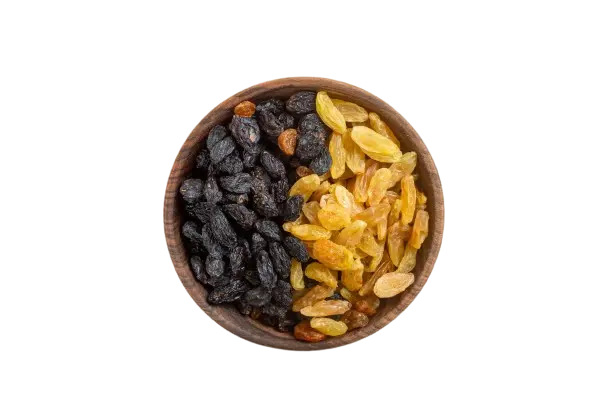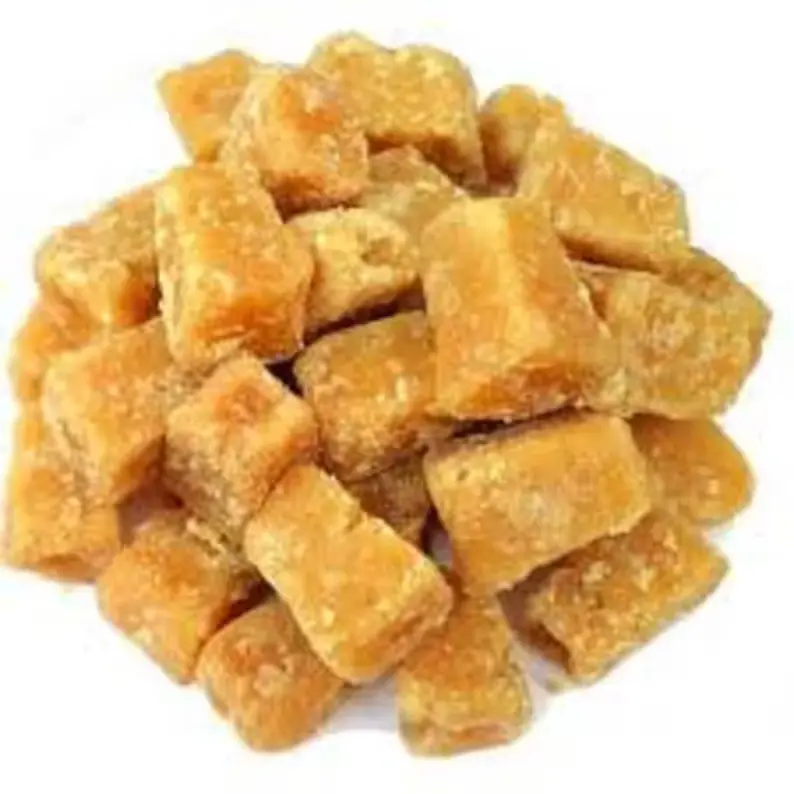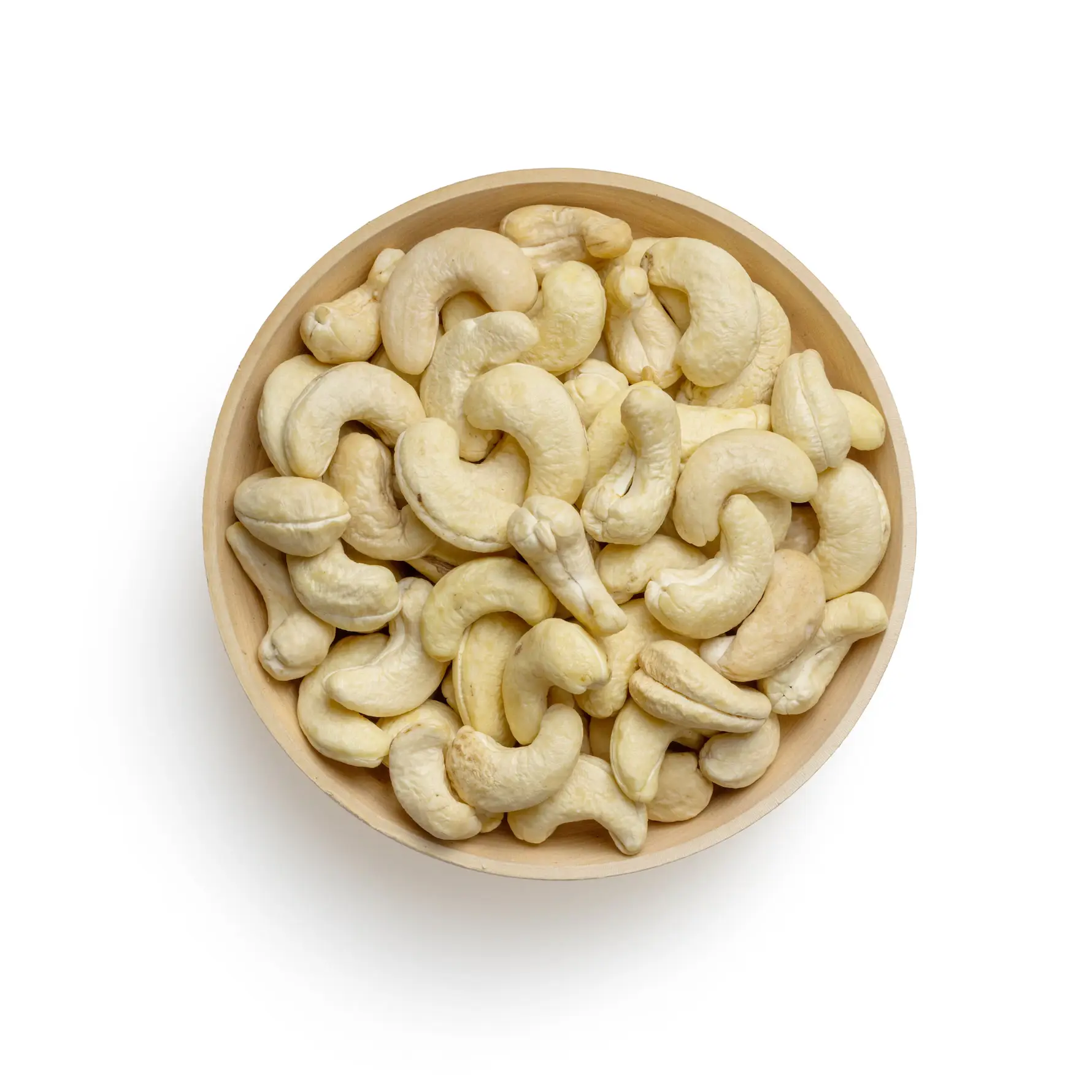Our Products
Turmeric
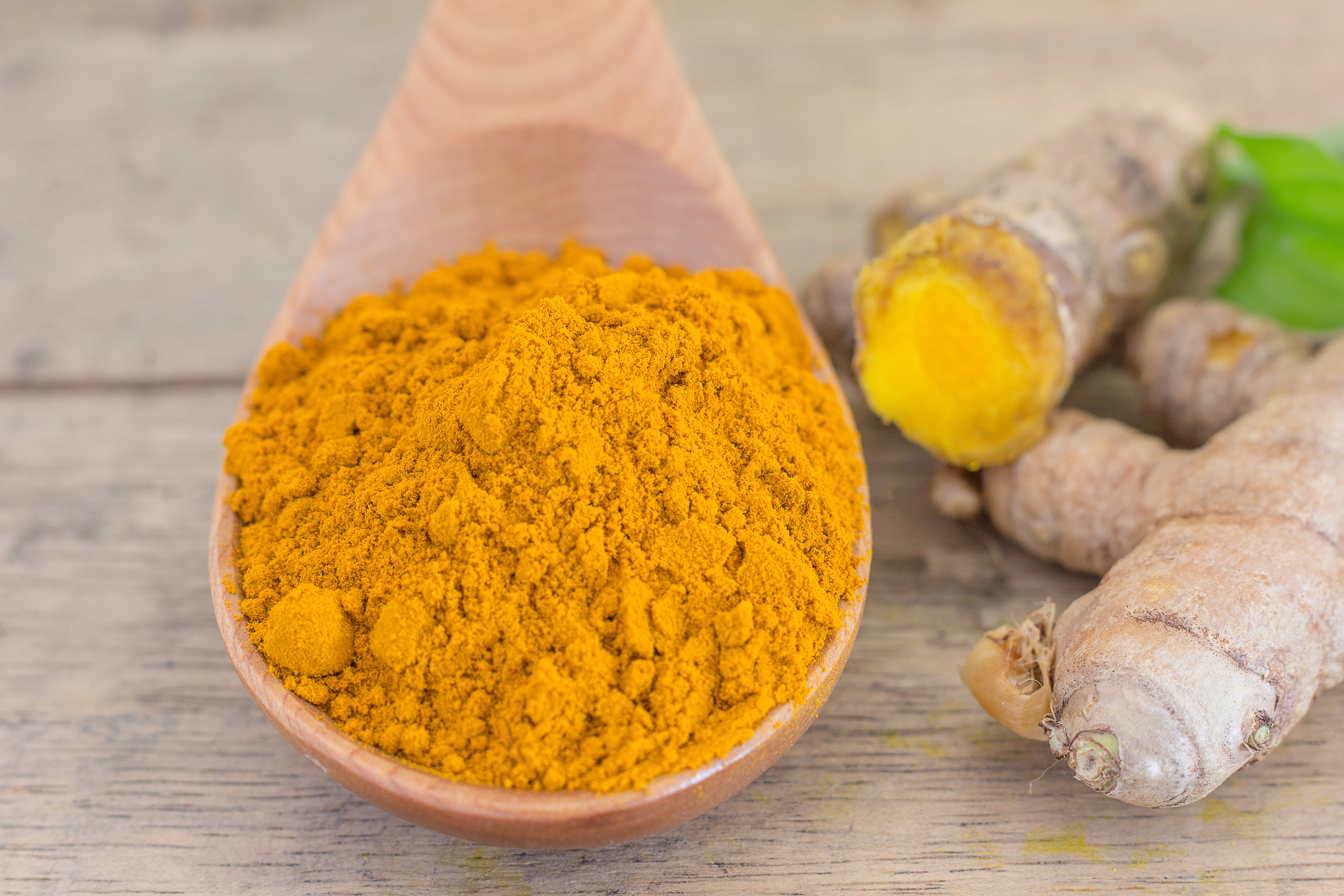
Turmeric

Turmeric
Nutritional Value of Turmeric
Turmeric is a vibrant yellow spice derived from the Curcuma longa plant. It has been used for centuries in traditional medicine and cooking, particularly in Asian cultures. The nutritional value of turmeric is primarily attributed to its active compound, curcumin, and other beneficial components.
Here's an overview of the nutritional content of Turmeric:
- Curcumin:
- Dietary Fiber:
- Vitamins:
- Minerals:
- Phytonutrients:
- Calories:
The primary bioactive compound in turmeric, curcumin, is renowned for its anti-inflammatory and antioxidant properties. It contributes to the distinctive color and numerous health benefits associated with turmeric.
Turmeric contains a moderate amount of dietary fiber, which supports digestive health and helps regulate blood sugar levels.
While not exceptionally rich in vitamins, turmeric provides small amounts of vitamin C, vitamin B6, and niacin (vitamin B3), contributing to overall nutritional intake.
Turmeric contains essential minerals such as iron, manganese, potassium, and magnesium. These minerals play roles in various physiological functions, including blood clotting, bone health, and muscle function.
In addition to curcumin, turmeric contains other beneficial compounds, including turmerones and gingerols, which contribute to its antioxidant and anti-inflammatory properties.
Turmeric is low in calories, making it a healthy addition to various dishes without significantly impacting overall caloric intake.
It's important to note that while turmeric is a nutritious spice, its concentrations of curcumin can vary. To enhance the absorption of curcumin, it is often recommended to consume turmeric with black pepper, which contains piperine, a compound that enhances curcumin bioavailability.
While turmeric is a valuable addition to a balanced diet, it is not typically consumed in large quantities, so its nutritional contribution may be limited compared to other primary food sources. It is often valued more for its potential health benefits due to its bioactive compounds. As with any dietary consideration, individual nutritional needs and health conditions should be taken into account.
Raisins

Malyar AAA
Raisins

Sundried Brown
Raisins

Sangli Green Round
Raisins

Sangli Green Round Average
Raisins

Sangli Golden Long
Raisins
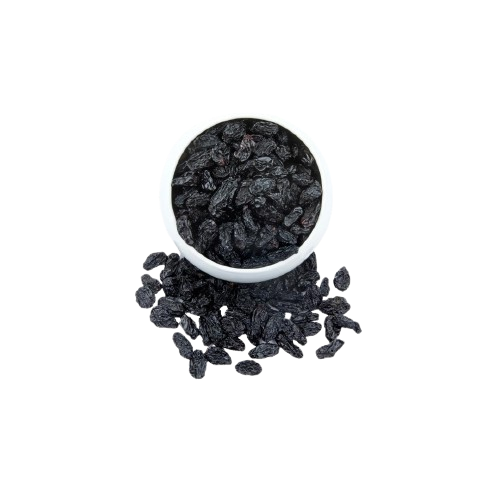
Black Medium
Raisins
Nutritional Value of Raisins
Raisins are dried grapes, and while they are small in size, they are packed with nutritional benefits.
Here's an overview of the nutritional value of raisins per 100 grams:
- Carbohydrates:
- Fiber:
- Protein:
- Calories:
- Vitamins:
- Minerals:
- Antioxidants::
- Natural Sugars:
The majority of raisins' content consists of carbohydrates, mainly natural sugars like glucose and fructose, contributing to their sweet taste.
Raisins are an excellent source of dietary fiber, promoting digestive health and helping with bowel regularity.
While not a significant source of protein, raisins contain small amounts, contributing to overall nutritional intake.
Raisins are energy-dense, providing around 299 calories per 100 grams.
* Vitamin C: Raisins contain a small amount of vitamin C, an antioxidant that supports the immune system.
* Vitamin K: Raisins provide vitamin K, which is essential for blood clotting and bone health.
* B Vitamins: Raisins contain various B vitamins, including B6, niacin, riboflavin, and folate.
* Iron: Raisins contain iron, contributing to the transport of oxygen in the blood.
* Potassium: Raisins are rich in potassium, a mineral crucial for maintaining fluid balance, heart health, and muscle function.
* Calcium and Phosphorus: These minerals play a role in bone health.
Raisins contain antioxidants such as resveratrol, which may have various health benefits, including protecting against oxidative stress.
Raisins are naturally sweet due to their concentrated sugars, making them a healthier alternative to processed sweets.
Jaggery
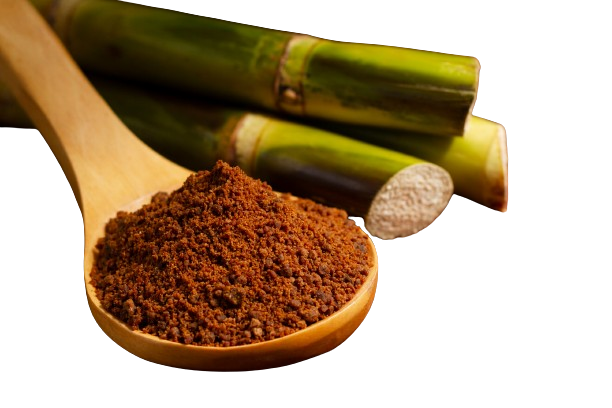
Powdered Jaggery
Jaggery
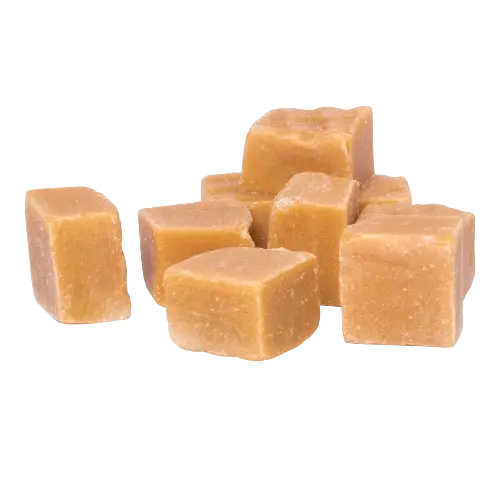
Cubes
Jaggery

Blocks
Jaggery
Nutritional Value of Jaggery
Jaggery is a natural sweetener made from concentrated sugarcane juice or palm sap. It is widely used in various cuisines for its unique flavor and potential health benefits.
Here's an overview of the nutritional value of jaggery per 100 grams::
- Calories:
- Carbohydrates:
- Sugar Content:
- Dietary Fiber:
- Protein:
- Vitamins:
- Minerals:
- Antioxidants:
Jaggery is energy-dense, providing around 383 calories per 100 grams.
The majority of jaggery's content consists of carbohydrates, mainly in the form of sucrose, glucose, and fructose.
Jaggery is a natural source of sugars, including sucrose, which gives it its sweet taste.
Jaggery contains a small amount of dietary fiber, aiding in digestion and promoting bowel regularity.
While not a significant source of protein, jaggery provides small amounts that contribute to overall nutritional intake.
* Vitamin B Complex: Jaggery contains various B vitamins, including B6, niacin, riboflavin, and folate.
* Iron: Jaggery is a good source of iron, contributing to the prevention of iron-deficiency anemia.
* Potassium: Jaggery contains calcium, contributing to bone health.
* Magnesium: Jaggery contains magnesium, which plays a role in muscle and nerve function.
* Potassium: Jaggery provides potassium, important for maintaining fluid balance and supporting heart health.
Jaggery contains antioxidants that may help neutralize free radicals in the body.
It's important to note that the nutritional composition of jaggery can vary based on factors such as the source of the raw material and the processing method. While jaggery provides some essential nutrients, it is still a concentrated source of sugars and calories, so moderation is key, especially for individuals monitoring their sugar intake or those with conditions like diabetes. Additionally, jaggery's potential health benefits may vary, and it is advisable to consult with a healthcare professional for personalized dietary recommendations.
Cashew Nuts
- BB
- W 180
- W 210
- W 240
- W 320
- W 400
- SWP
- SW 210/180
- SW 240/320
- MIX
- J. H.
- L. W.P.
Nutritional Value of Cashew Nuts
Cashews are nutrient-dense nuts that offer a variety of health benefits. Here's an overview of the nutritional value of cashews per 100 grams:
- Calories:
- Proteinr:
- Healthy Fats:
- Carbohydrates:
- Dietary Fiber:
- Vitamins:
- Minerals:
- Antioxidants:
Cashews are energy-dense, providing approximately 553 calories per 100 grams.
Cashews are a good source of protein, containing about 18 grams per 100 grams. Protein is essential for various bodily functions, including muscle repair and immune support.
Monounsaturated and Polyunsaturated Fats: Cashews are rich in heart-healthy fats, including monounsaturated and polyunsaturated fats, which contribute to cardiovascular health.
Cashews contain carbohydrates, including dietary fiber, which aids in digestion and helps maintain stable blood sugar levels.
Cashews provide dietary fiber, promoting digestive health and contributing to a feeling of fullness.
* Vitamin K: Cashews contain vitamin K, essential for blood clotting and bone health.
* Vitamin E: Cashews are a good source of vitamin E, an antioxidant that helps protect cells from damage.
* Magnesium: Cashews provide magnesium, which is crucial for muscle and nerve function.
* Phosphorus: Cashews contain phosphorus, important for bone health and energy metabolism.
* Copper: Cashews are particularly rich in copper, a mineral that supports various physiological processes, including iron metabolism.
Cashews contain antioxidants, including selenium, which help protect cells from oxidative stress.


